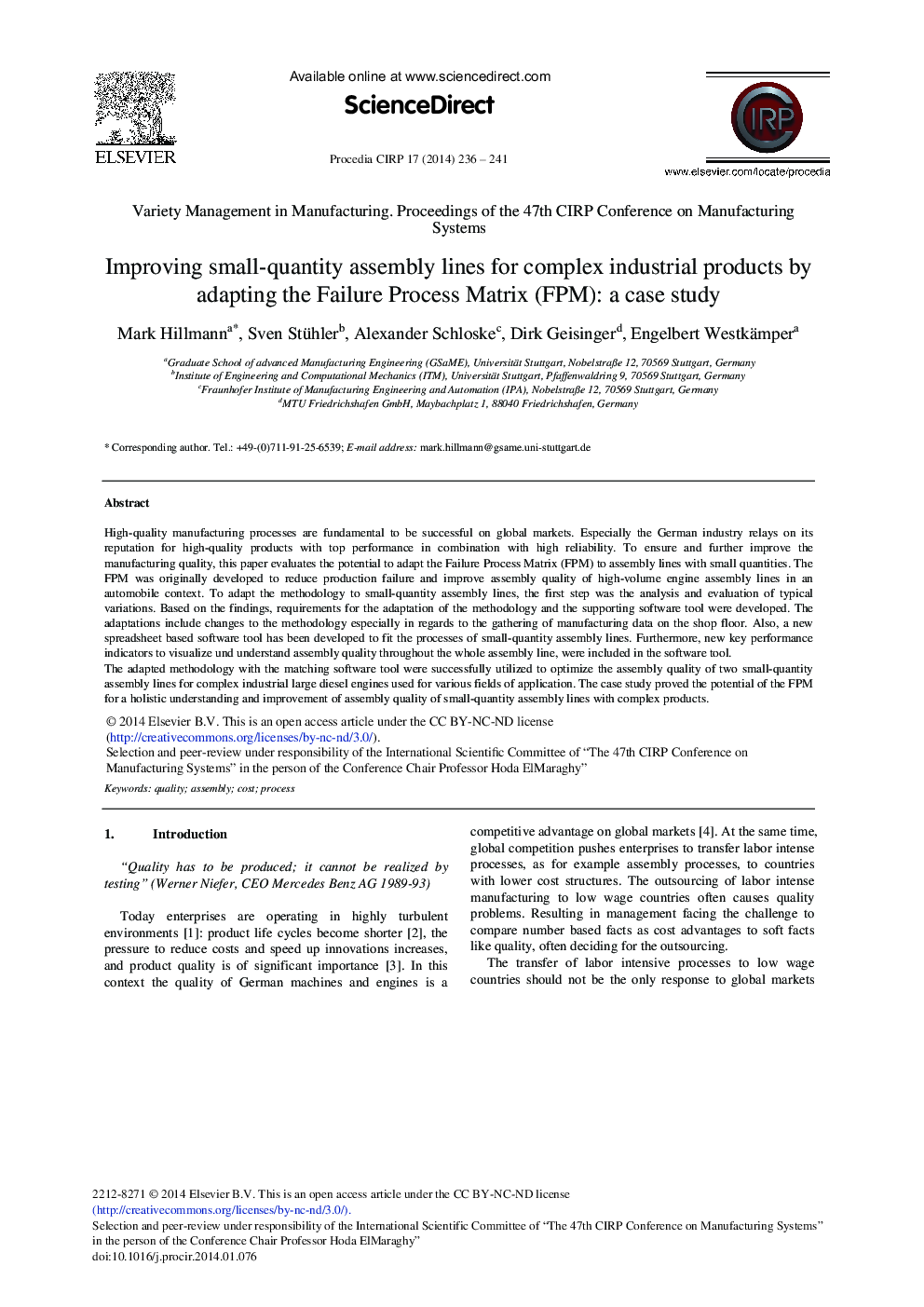| Article ID | Journal | Published Year | Pages | File Type |
|---|---|---|---|---|
| 1700379 | Procedia CIRP | 2014 | 6 Pages |
High-quality manufacturing processes are fundamental to be successful on global markets. Especially the German industry relays on its reputation for high-quality products with top performance in combination with high reliability. To ensure and further improve the manufacturing quality, this paper evaluates the potential to adapt the Failure Process Matrix (FPM) to assembly lines with small quantities. The FPM was originally developed to reduce production failure and improve assembly quality of high-volume engine assembly lines in an automobile context. To adapt the methodology to small-quantity assembly lines, the first step was the analysis and evaluation of typical variations. Based on the findings, requirements for the adaptation of the methodology and the supporting software tool were developed. The adaptations include changes to the methodology especially in regards to the gathering of manufacturing data on the shop floor. Also, a new spreadsheet based software tool has been developed to fit the processes of small-quantity assembly lines. Furthermore, new key performance indicators to visualize und understand assembly quality throughout the whole assembly line, were included in the software tool.The adapted methodology with the matching software tool were successfully utilized to optimize the assembly quality of two small-quantity assembly lines for complex industrial large diesel engines used for various fields of application. The case study proved the potential of the FPM for a holistic understanding and improvement of assembly quality of small-quantity assembly lines with complex products.
